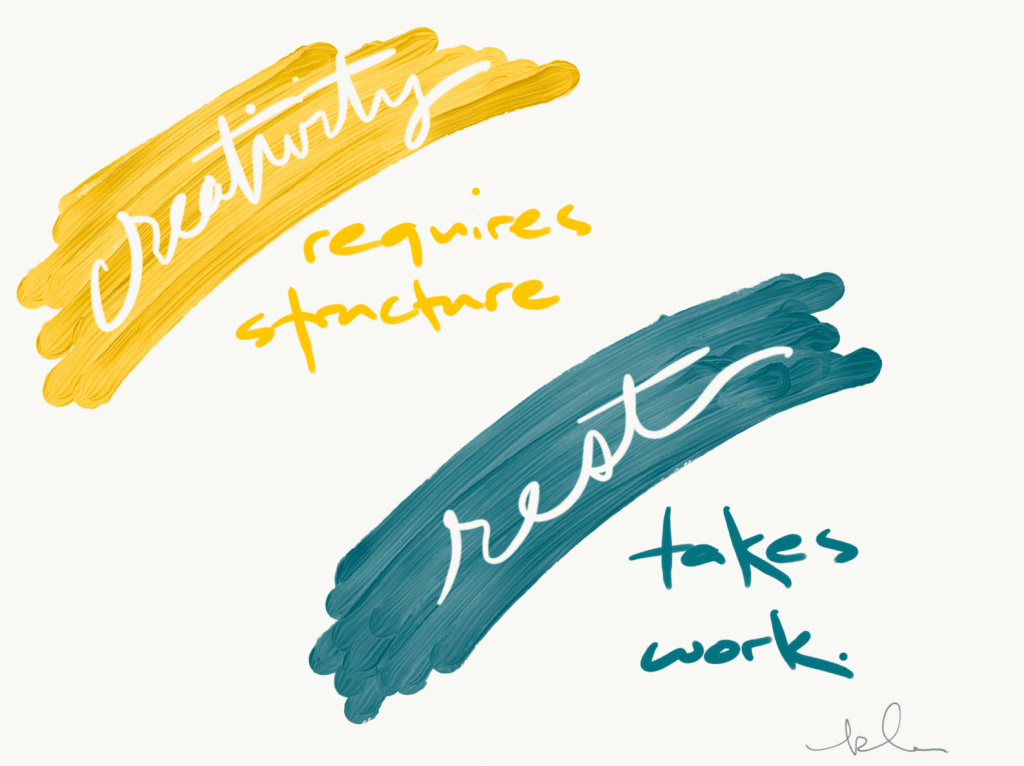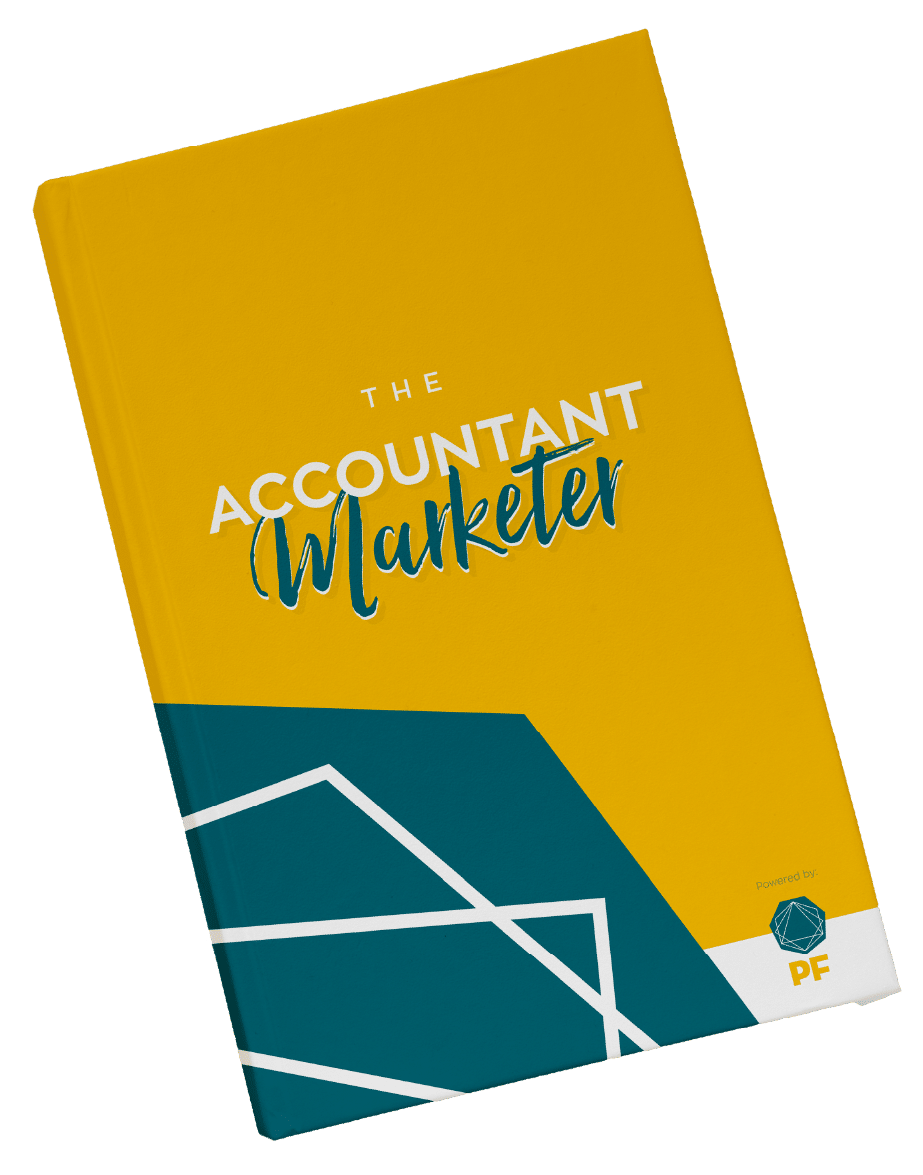Last week we had a 3 day team retreat, and it was amazing and inspiring and difficult and challenging and we did things wrong and we did things right.
As a team, we read the book Creativity Inc by Ed Catmull, co-founder of Pixar. (Side note: one of the best business books I’ve ever read, and reading it together as a team gave us amazing insights into running a creative business.)
One of the things they instituted at Pixar is a day they call “Notes Day”, which is really like a big brainstorm, collaboration, ideas, thoughts, plans, actions day.
It’s a day to make the business better, and to really listen to what the team have to share.
Part of our team retreats always include reading a book together as a team, and discussing it on sessions during the retreat itself. The deadline to finish reading the book is the morning of the first retreat day.
I still had half the book to finish two days before retreat started.
I was feeling sort of grumpy about it. Like I knew it was my own responsibility for putting it off, and even though I LOVE the book and knew it was already making us better as a company and a team, I knew I could have finished it earlier and been more prepared.
There were Reasons, of course (there always are), and I know I’m a deadlines-person (I’ll always get it done by deadline, but often quite close to the wire). But as one of the team said later in the retreat, “you have to plan for things not to go to plan”. (I planned to finish it on the friday night or Saturday morning, but my mum got covid and i spent the weekend talking to family and distracted by that.)
And as i read about Notes Day, i saw the incredible amount of effort they put in to preparing for this ONE day. Granted, they had 1100 people at Pixar and we’ve got 11 at PF, but still….it was Monday afternoon and I was finishing the second half of a book I’d been telling the team to be sure to read , for months.
I hadn’t written the team retreat agenda.
I hadn’t given assignments or sent a video to the team about how the retreat would go.
We all had a general sense of how it would run – there was really good feedback from the last time we ran one – but I realised I’d not lived up to the responsibility which is mine as a business owner and leader to prepare the crap out of this retreat so we were all excited, and motivated, and knew the boundaries, and prepared, and would get the most from it.
The Pixar team prepared for months. Message boards, small groups, conversations, planning, assigning leaders, gathering input, documenting, listening.
For one day.
One really structured, organised, planned day….
…to draw out creative ideas.
And I started to see: in order to be creative, you need to structure things.
The second thing I saw was that resting is HARD. Choosing to rest – to take a break from our normal client work and have one to one conversations, think creatively, play, chat, brainstorm, get fresh air, think, read – does not. come. easy.
In advance of the retreat, some of the team shared (in line with our transparency value) that although they knew the retreat would be good, they were having a hard time being motivated for it and positive about it because of how much work we have on right now. It even felt like using spare time within those retreat days to finish client work WOULD be more restful, because then those projects and actions would be off the very full list.
Although we know resting is good and helps us be more creative, it feels backwards to have to WORK at it. We were tempted to think resting just sort of happens. Or to redefine rest because we have so much work to do.
I am incredibly honoured to have a team who share transparently how they feel, and from a heart to serve, to help the company and our clients and the rest of the team.
We talked about it – in slack, in one to one calls, and together on the retreat.
I said I wondered if the team retreat exists purely to remind us
1) work will never end
2) choosing rest feels scary and hard
3) we need it more than we know
4) our clients will be okay (better, even) because of what we choose to do
And the whole conversation caused us to think about how we are working now, how that needs to change and where. About how things are different now because we aren’t able to go anywhere or do anything so we’ve created a cycle of continuous work, but we have to begin thinking about how we change things once there’s more to life than work and a walk & making dinner.
And we saw that true rest takes work.
In order to rest, you have to plan for it. Think about what’s coming and when, and what kind of rest you’ll choose and what must be set aside in order to have that rest.
Rest doesn’t mean “doing nothing”.
It doesn’t mean sleeping and watching Netflix and just sort of sitting around. That’s needed too at times – but that’s not rest. It’s relaxation, and entertainment. You’re not thinking about anything (or you’re letting something else fill your head so you don’t have to think about something specific).
Rest is a refreshment. A soul healer. A new perspective.
And preparing for it takes work. It includes things like:
- being clear in your mind about what rest includes (and doesn’t include). We agreed on team retreats we won’t do any client work, because we wanted the rest of mind that comes from looking at things differently.
- choosing a certain activity for a particular amount of time. We blocked out “fresh air breaks” in which we made sure to get outside and let the actual air clear our heads. Where possible we left our phones inside so we had a fully cleared head.
- Buying or getting ready what will help us rest or enjoy our resting activity. Buying a book, colouring books, painting materials, nice coffee, a journal, a nice set of pens. Brewing tea or making a really high quality pot of coffee. Rearranging an area of your room or house so you can focus on your resting.
- Getting alone and being quiet. It’s rare for true rest to include another person: not because it’s not possible (I think it is), but because of our temptation to let ourselves be distracted by others. Their issues, their concerns, their thoughts. Distraction isn’t part of rest: it prevents rest.
The other thing to be aware of with rest is that it will bring out hard things.
When you start resting, you’re allowing yourself to think. To process. To consider. To wonder. To ask questions. To be challenged.
You’re not avoiding that thought or idea or concern: it’s front and centre now (even if you didn’t realise it had been pushed to the back), and your mind is clear enough to begin to consider it.
That takes work, too. The mental work of saying, “Okay: I’m choosing rest now. And there are things which will cross my mind and heart during this time which may need to be dealt with: but I’m not going to use that time to actually deal with them. I’m going to let them swirl, let them be there, sit with them, either befriend them or at least recognise them. I can sort them out later, do the work, do the thing: but for now I’m choosing not to be distracted. Not to be overworked. Not to be busy. I’m choosing rest.”
So if you want to be a person who builds creativity and rest into your life….
…it takes structure. It takes work.
But once you’ve done that, it becomes a place where the real good flows from.
The outcome of creative time and resting time is new ideas. Changed plans. New perspectives. Re determination. Commitment.
And over time, it brings joy. Soul refreshment. A lifting of the spirits. A clear mind.
That’s why it’s worth the effort.



